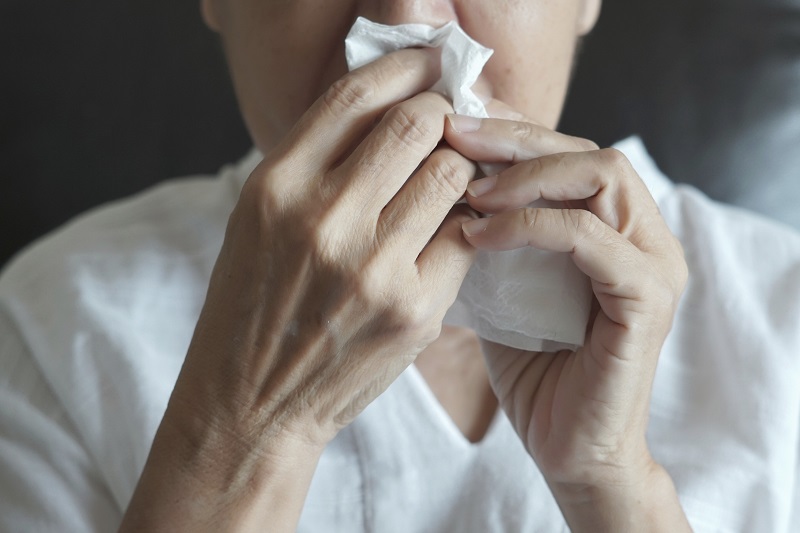Chronic nasal congestion, redness and itching of the eyes can be caused by house dust allergy, which is more common in winter, Semmelweis University warns.
It’s annoying to have a frequent, almost continuous cold rampant in the whole family – when after a few days” break, it goes around all over again. What we don’t necessarily think about, however, is that the trigger may not be a current virus, but house dust lurking in our homes.
Although the common name of the disease is house dust allergy, the trigger is not dust in the home, but a tiny creature called dust mite, and its droppings.
“During the heating season, the drier air makes fragmented particles of dust adhere to textiles: carpets, blankets, curtains, stuffed animals, and from time to time they are inhaled from the air, causing allergy symptoms. The mites feed on epithelial cells shed from the human body, so they are most likely to settle in the bed,” explains Dr. Helga Kraxner.
The assistant professor at the Department of Otolaryngology and Head and Neck Surgery at Semmelweis University stresses that even though it is not possible to make households completely free of mites, but their numbers can be drastically reduced by thorough cleaning and damp dusting.
“It is important to use a vacuum cleaner with a HEPA filter if one or more members of family are allergic to dust mites, because household appliances with an inadequate filter release allergens back into the air. People suffering from house dust allergy should keep as few dust-catching items in their homes as possible, use washable textiles and avoid heating the air too hot,” the expert said.
In Hungary, a small proportion of people with allergies suffer from dust allergy, but in many cases the disease is not detected because not everyone who has chronic nasal congestion goes to the doctor. However, effective therapy can only be started after lifestyle advice and symptomatic treatment, including antihistamine products, nasal sprays for severe cases, and rarely eye drops, but also immunotherapy.
What to do if you suffer from house dust allergy
Never take your street clothes off in the bedroom, do not comb your hair or keep houseplants there, and keep the temperature below 20 degrees Celsius.
Dust your stuffed animals regularly: put them in a bag in the freezer, then take them out after a few hours and vacuum them well.

